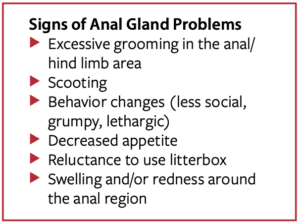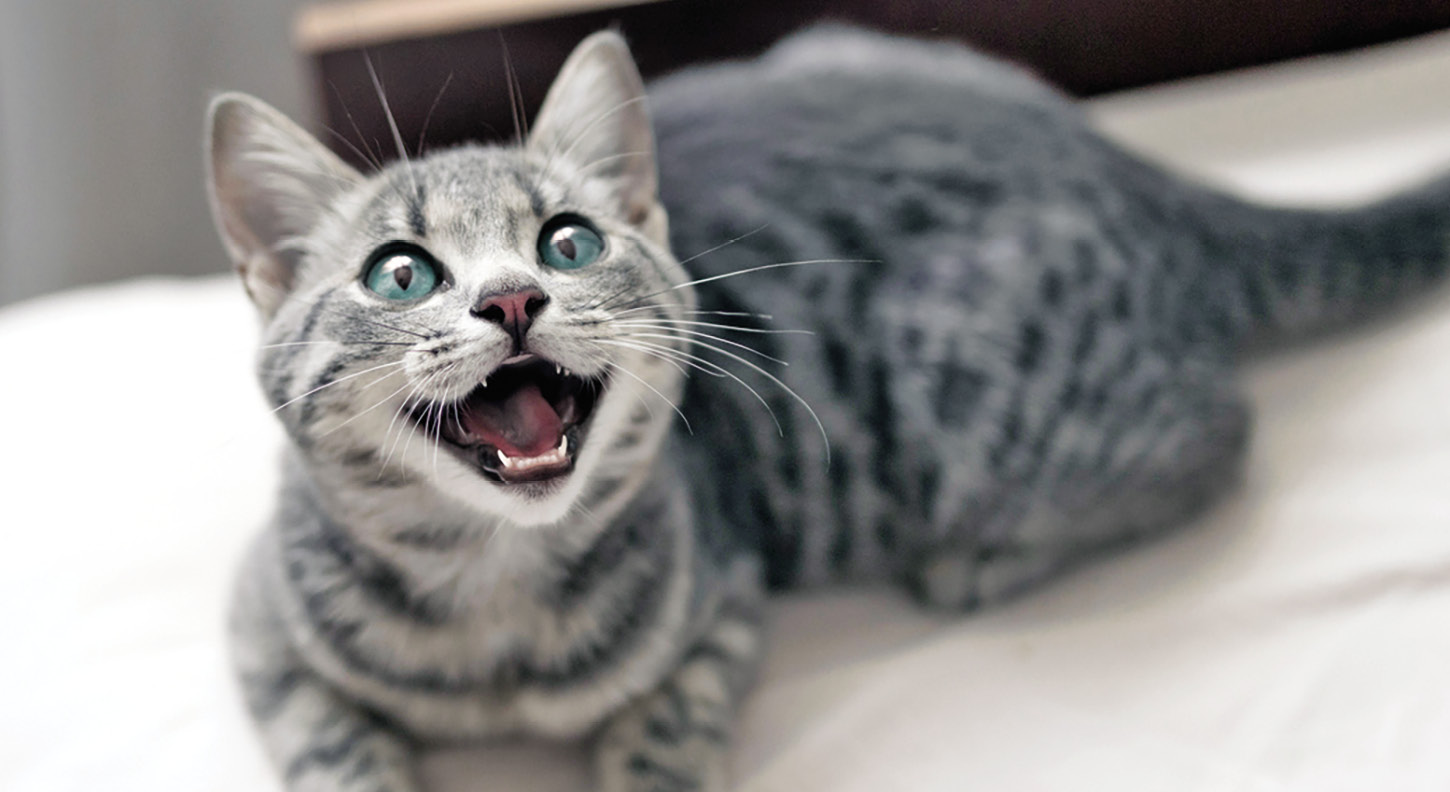If you ever see your cat dragging her butt across the floor, you’ll probably do a double take, but cats do sometimes have anal gland issues.
“Unlike dogs, cats do not commonly experience anal gland problems,” says Leni K. Kaplan, MS, DVM, senior lecturer at Cornell University’s College of Veterinary Medicine, but when they do occur, they are quite uncomfortable.
Your cat’s anal glands are located just inside the anus. These glands secrete a dark, stinky fluid that is then expressed when your cat defecates. This is part of what gives cat poop its lovely aroma.
Why do such beautiful beings have such an odorous detail? The smelly anal gland secretion acts as a signature scent to give other cats information about that cat and to mark its territory. Like dogs and skunks, cats may also express their anal glands when threatened to distract the predator so the cat can get away. For most cats, the anal glands will function normally throughout their entire lives.
Impacted Glands
One problem that cats can sometimes develop is impacted anal glands. “This occurs when the secretions do not empty on a regular basis and become thicker and obstruct the duct so the glands cannot evacuate naturally,” says Dr. Kaplan. “When this occurs, the gland becomes overly distended/full/swollen which is quite uncomfortable.”
The glands will continue to produce secretions even though there is no more room for storage. The solution is to manually express the glands.
 Abscesses
Abscesses
“An anal gland abscess may develop when the gland is inflamed or infected from impaction. Sometimes, the abscess will rupture and form an open draining tract near the anus as a means of getting the gland emptied,” says Dr. Kaplan.
Impacted anal glands are a perfect home for bacteria because they are warm and moist. And like any infection, infected anal glands are not comfortable. The ruptured abscess will relieve the pressure of the impacted gland(s), but also hurts.
Abscessed anal glands are treated in a similar manner as other abscesses. Your veterinarian will flush the abscess to remove as much pus and bacteria as possible, then start your cat on a course of antibiotics. Sutures may be needed in extreme cases, but these wounds are usually left open to allow continued draining as they heal on their own.
Expressing Cat Anal Glands
A fair number of dogs benefit from having their anal glands manually expressed either periodically or on a more regular basis, but this is not common for cats.
“Due to the tiny size of a cat’s anus, it is quite uncomfortable for cats to tolerate a rectal exam and anal gland expression without sedation, especially when we are working so hard to promote low stress, fear free visits,” says Dr. Kaplan.
A sedated cat is much more likely to hold still, allowing the veterinarian to do a more thorough investigation of the area to make sure that everything is properly cleaned before the kitty goes home.
“For most cats, they should not need a routine anal gland expression,” says Dr. Kaplan. “If a particular cat has recurrent episodes of anal gland impaction, infection, or abscess, make sure the owners speak with their veterinarian about options on how to address this medical issue. Some cats may need surgery to remove the anal glands, but this is rare.”
Bottom Line
“Should any of signs of an anal gland problem be detected, the cat should be seen by its veterinarian,” says Dr. Kaplan. Treating an impacted gland early can prevent an infection from setting in and spare your cat the discomfort of a ruptured abscess.
If you notice your cat scooting, she most likely has some dried poop on her rear that she is trying to dislodge. Check out the situation and help her clean up.
If you don’t see an obvious reason for her odd behaviors relating to her behind, it’s time to schedule a veterinary exam to sort it out.
Open sores and draining abscesses are not usually an emergency, but prompt treatment will have your cat feeling better quickly.




